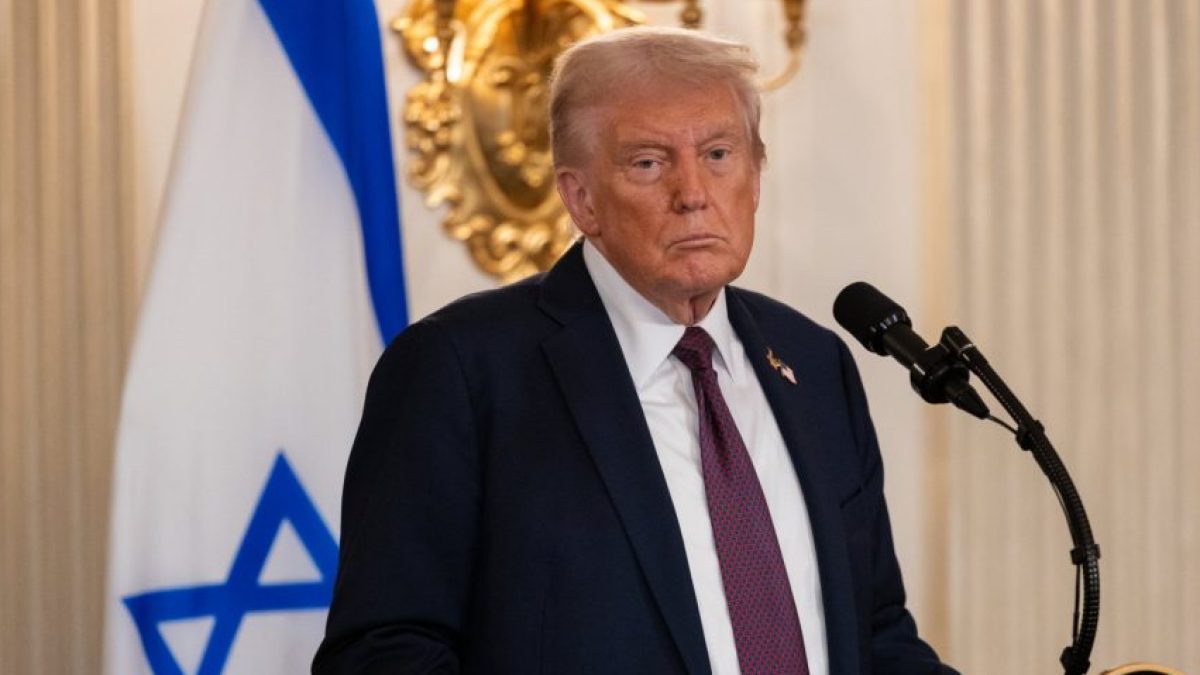
“Trust, but verify” was a maxim often cited by Ronald Reagan in the 1980s during nuclear disarmament talks with Soviet leader Mikhail Gorbachev. Ironically, the phrase the former US president frequently recited, as he sought to end the Cold War, is rooted in a Russian rhyming proverb: Doveryay, no proveryay. Reagan somehow brought it to fruition.
During my time as director of intergovernmental affairs, serving in both the George H W Bush and Bill Clinton administrations, every trade deal negotiated on the international stage, whether bilateral or multilateral, relied to a large extent on that approach.
Whether it is negotiating trade agreements or peace deals, there’s a dramatic difference in reaching one in a boardroom and executing it on the ground. President Clinton worked hard to successfully negotiate a deal between Israel and Palestine in 1993, presiding over a historic handshake between Israeli and Palestinian leaders in the White House Rose Garden. But what appeared “rosy” at first withered in the harsh realities of the Middle East.
Like Donald Trump this week, Clinton announced a “bold breakthrough” and “shining moment of hope for the people of the Middle East and, indeed, of the entire world”. But reaction to the Oslo Accords was bitterly divided in the region among the people most affected. The world watched once again as things fell apart. Mistrust and violence clouded the following years. Now, we come to the precipice of yet another “historic deal”.
As Israel and Gaza seek to implement the terms of the agreement crafted by President Trump, both sides must construct a common future built on a shaky foundation of trust using an essential but elusive framework of verification.
As a journalist and commentator, I had the opportunity to witness at first hand the downside of diplomatic failure. I embedded with US troops in Iraq twice in 2003 and 2004, seeing the results of failed talks that turned to military action in Fallujah, Baghdad and other “hotspots”. Diplomatic negotiations do not guarantee a successful resolution of any conflict; but the failure to talk never leads to peace.
The big question is, will the long warring sides have the capacity to take a leap of faith towards a potential future of peace and prosperity with a partner for whom there is no reservoir of trust, based upon legitimate scepticism and decades of experience with failed epic “peace agreements”?
Can the Israelis embrace a belief that Hamas will not continue to “run the show” in Gaza either directly or indirectly? Will Gaza residents, raised with the desire to eradicate Israel shouted in chants of “from the river to the sea”, now abandon that objective? Can the detailed goals of the peace plan be reached through diplomacy rather than force? Can those who planned, implemented or simply cheered the atrocities of October 7 be believed to have, or be able to develop, a real change of heart toward Jewish people in Israel?
Gazans, who have survived a relentless bombardment from Israel, would need to be able to move forward in partnership with those who turned their homes to rubble and killed many family members and friends.
Will the promises made to entice them to leave the remnants of their communities, with pledges of funding a “new Gaza”, and the offer that they can return when construction is completed, be believed?
With so much historical animosity, hatred and betrayal, it will be a challenge to bridge the divide in a meaningful and lasting way, even in the short term. But it is also an opportunity, if both sides can find a way to embrace it.
Trust, but verify. A great phrase that flows easily off the tongue, whether in English, Hebrew or Arabic. And it must be applied in seeking to end the tragic and deadly conflict in Gaza.
It will not be easy, but it is possible, and it is the only way to end the ongoing carnage and destruction.
Steve Gill is a former international trade adviser who served in the George H W Bush and Bill Clinton administrations, and a lawyer who teaches international business at Belmont University in Nashville, Tennessee
